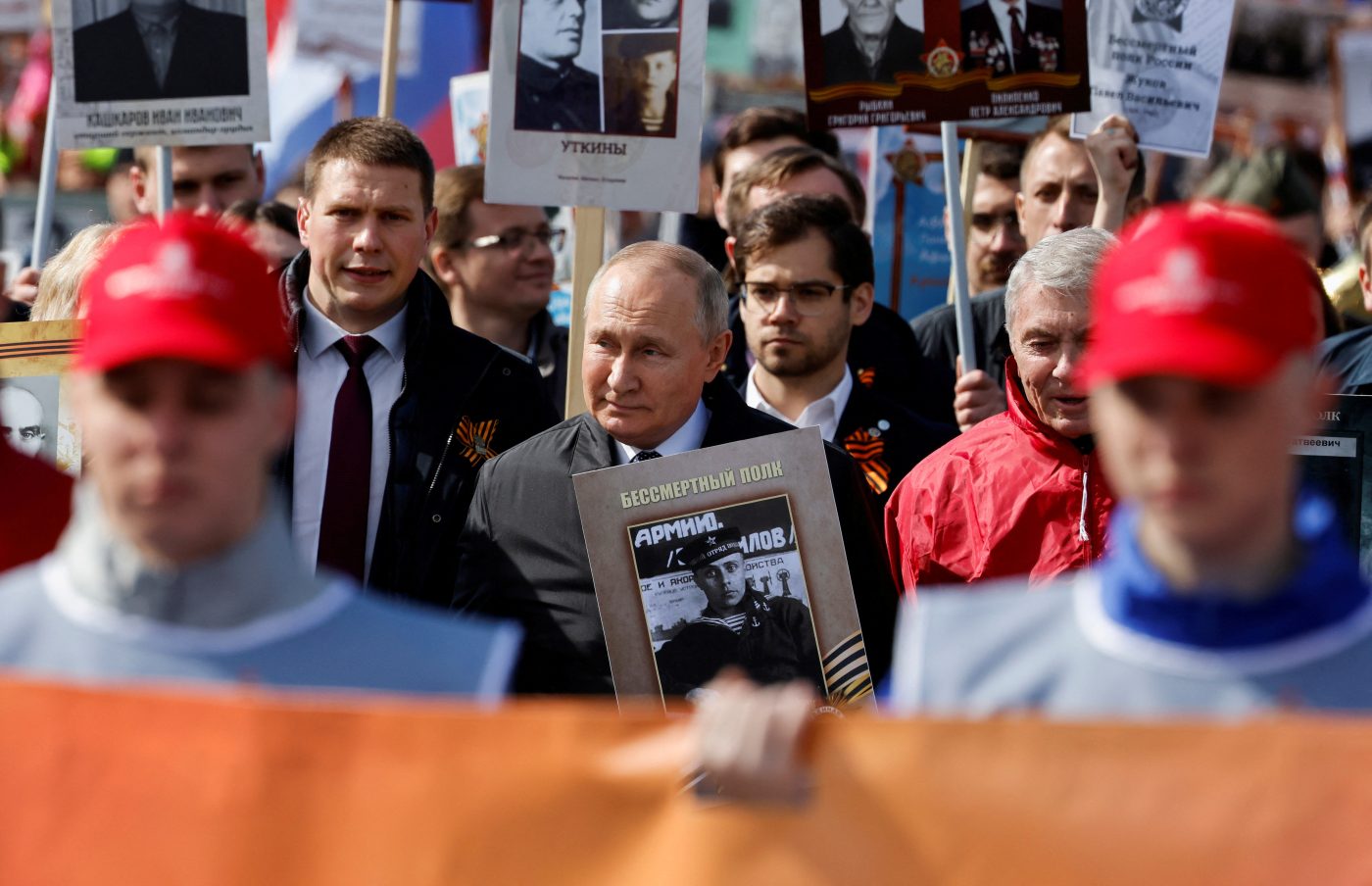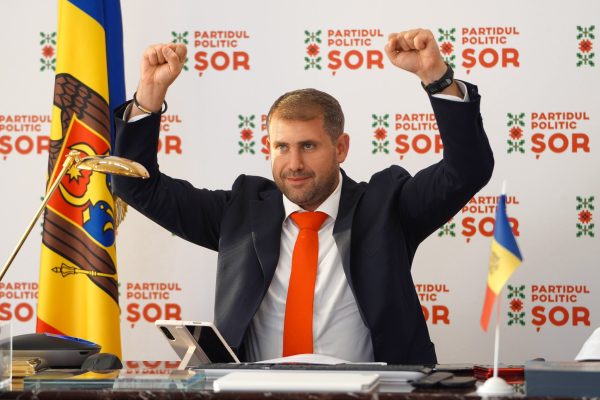Opinion research indicates that there are no red lines in Russian society, just passive conformity on national security issues.
It may have seemed an outlier when, in June, the senior Kremlin-approved foreign policy thinker Professor Sergei Karaganov proposed a preemptive nuclear strike on Europe (for example, on the Polish city of Poznan, population 500,000-plus) to secure Russia’s goals in Ukraine and beyond.
Yes, Karaganov conceded, this was a morally terrible choice. But the failure to lay waste to whole cities would result in the ultimate destruction not just of Russia but of human civilization itself. This he termed a “difficult but necessary decision.” As for the US response, he counseled readers not to worry: “Only a madman, who, above all, hates America, would have the guts to strike back in ‘defense’ of Europeans.”
Many Russian experts have condemned such rhetoric. Furthermore, according to an April opinion poll by the Levada Center — the only major state-independent sociological center in Russia dedicated to uncovering public opinion there — less than a third (29%) of respondents believe that Russia’s possible use of nuclear weapons in the Ukrainian conflict is justified. The majority (56%) believe that the use of such weapons cannot be justified. (By the way, Levada Center evidence does not support the idea, widespread in the West, that Russians are too fearful to participate in opinion surveys.)
So the world can draw a sigh of relief? Panic over? Sadly, it’s more complicated, and more depressing, than that
The hard truth is that at the moment, the Kremlin does not intend to use nuclear weapons and so the only hydrogen bomb rhetoric comes from the occasional pro-Kremlin commentator in the media.
And yet, if the government did decide to change its rhetoric and make policy more genuinely threatening, using all the tools at its disposal, public opinion would likely fall into step. As it has numerous times in the past.
Levada Center data shows that in December 2021, 37% of Russians considered war with Ukraine possible, with more than 50% believing it was unlikely or impossible. By February 2022, 51% demonstrated fear of the possibility of war between Russia and Ukraine. However, immediately after the start of the all-out war, 81% of Russians supported the actions of the armed forces in Ukraine, with only 14% opposed. By May, despite horrifying evidence of aggression, the level of support had hardly changed: 76% approved and 18% opposed the war. So while Russians may not have wanted or expected war, they threw their weight behind the Kremlin’s decision the moment it began.
Why? Well largely because Russians believe that responsibility for events lies entirely with Russia’s opponents. Four months before the full-scale war, about half Russian population was sure that the United States and NATO were escalating the conflict in Donbas. Just before February 2022, 60% thought so.
By June of last year, 82% of respondents had a negative attitude toward NATO. The perception of the threat from the NATO countries has grown and returned to the level of March 2014: 60% of respondents believe that the Russian Federation has reason to fear these countries, and slightly more than a third (35%) that there is no such reason. Compared to November 2021, the share of those fearing NATO increased by 12%. Moreover, according to the majority of respondents, it was the pressure of NATO and the United States that caused a significant number of countries to condemn Russia’s actions against Ukraine.
These ideas match those spread by state-run media. During the war, 62-69% of Russians say television has been their main source of information, and among all sources, it enjoys the greatest trust. Television regularly broadcasts calls for a nuclear strike from experts, presenters, and State Duma deputies. Russian television presents a nuclear strike as the same type of forced measure as the invasion of Ukraine. According to Deputy Chairman of the Security Council of the Russian Federation Dmitry Medvedev, Western countries are wrong to discount a preemptive nuclear strike.
The majority of Russians justified the invasion of Ukraine by protecting the “Russian-speaking population,” “civilians” of the self-proclaimed territories/regions of Ukraine (Luhansk People’s Republic and Donetsk People’s Republic), protecting Russia, eradicating ultra-nationalists, or defending against NATO. Having annexed these territories to Russia, the state discourse again talks about the need to protect Russia and about the threat to its territorial integrity.
Russian society exhibits no moral or political red lines. It is simply passive and conformist, willing to submit to decisions made by the authorities. This obedience is dictated not only by passivity but also by fear of reprisals from the employer and the state. Citizens are keenly aware of this and those willing to consider protest has remained at just 12% over the past few months. Participation in such demonstrations is now punishable by heavy fines and imprisonment.
Russian society did not turn out in sustained, mass protest when the war began, or when the coffins began to arrive, or when the draft was announced, or when the border regions of Russia began to be shelled, or when explosive drones struck Moscow.
It is safe to conclude that Russians will not turn out even if Putin launches a nuclear bomb.
Maxim Starchak is an independent expert on Russian nuclear policy, strategic weapons, and the defense industry. Fellow at the Centre for International and Defence Policy of Queen’s University in Canada and a Russia correspondent for Defense News.
Europe’s Edge is CEPA’s online journal covering critical topics on the foreign policy docket across Europe and North America. All opinions are those of the author and do not necessarily represent the position or views of the institutions they represent or the Center for European Policy Analysis.





